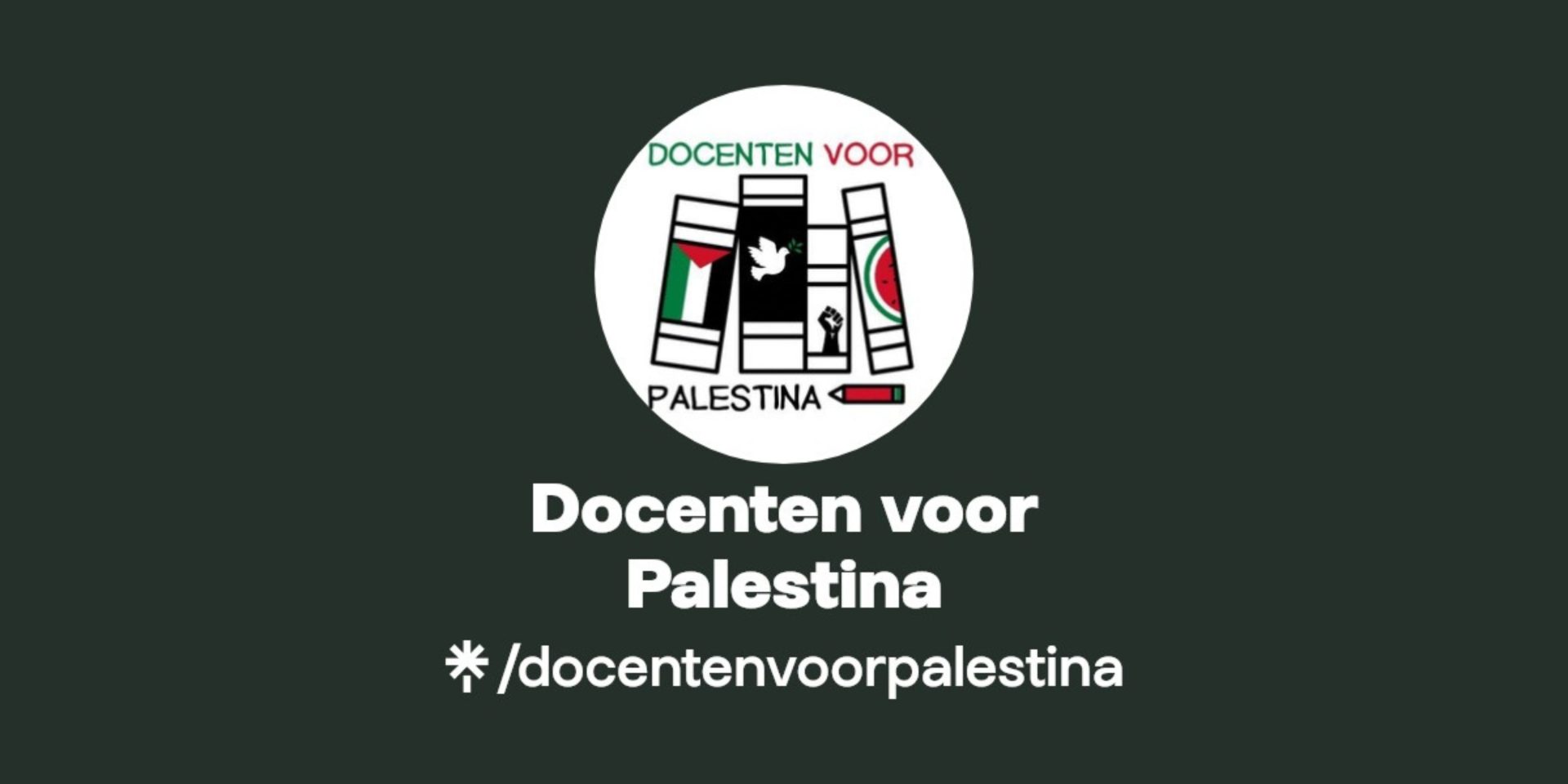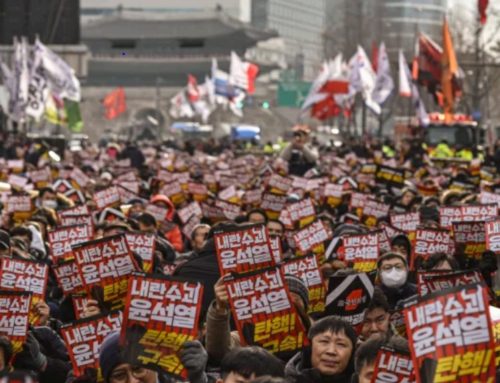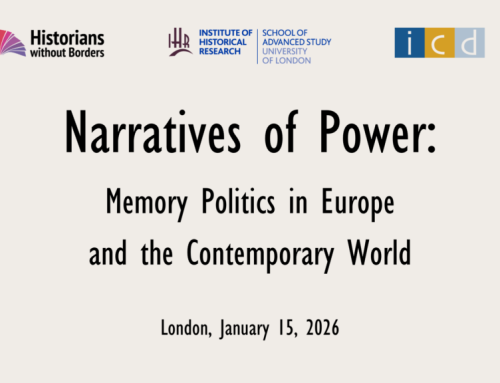When speaking with Maayke and Farah from Docenten voor Palestina (Teachers for Palestine), it is clear that their work as educators is rooted in a sense of responsibility to their students, to history, and to justice. Both work in Dutch schools, Farah teaches primary school in a diverse urban environment, while Maayke teaches social studies at a secondary school and an international school. Together with other teachers in the Netherlands, they have come together as a collective of educators who want to challenge the way Palestine is taught – or rather, the way it is not taught – in Dutch classrooms.
“We don’t see ourselves as a movement in the traditional sense,” Maayke explains early in the conversation, “but we are a collective of concerned teachers. We see education as something that should be impartial and complete.” For Farah, this concern is closely tied to what she sees happening in her classroom; teaching children from many different backgrounds (Arabic, Surinamese, Indian, Dutch, Russian, Ukrainian) she notices how much of what they learn about the world is shaped by what textbooks choose to include or leave out.
Both teachers are deeply critical of how Palestine is framed within Dutch education. “It is almost always presented as a ‘conflict’,” says Maayke. “But calling it a conflict suggests there are two equal sides. That’s not what we’re dealing with here. Israel is a powerful occupying force, backed financially and militarily by Western countries, and Palestinians are an occupied and oppressed people.” Farah agrees. “Language is crucial in teaching. The words you use shape the story you tell.” For them, this is not about losing nuance, it is about clarity. They argue for using terms like de Kwestie Palestina (the question of Palestine) rather than ‘the Middle East conflict’, because, as Farah puts it, “This wasn’t a conflict that just happened in the Middle East. It was brought there by the Zionist movement and colonial powers already present in the region.”
At the heart of their criticism is how the Dutch curriculum often begins the story with the Holocaust, a history that both teachers insist must be taught thoroughly, but which, in their view, is wrongly presented as directly connected to the situation in Palestine today. “Palestinians opened their doors to people who had suffered enormously in Europe,” Farah says. “But what happened in Europe and what is happening in Palestine today are two different things.” They see a clear imbalance in how history is taught, with much attention to the suffering of the Jewish people, but almost no weight given to the suffering of Palestinians. Crucial events like the Nakba (catastrophe), during which over 700,000 Palestinians were expelled from their homes in 1948, are often absent from textbooks. “It’s an atrocity,” Maayke says, and very few students know about it because it’s simply not in the materials they use.
Throughout the conversation, the two teachers return to these questions of language and narrative, of whose story gets told, and how. They reject the framing of the situation in Palestine as a religious conflict. “This is not about religion. It’s about colonialism. It’s about geopolitics,” Farah stresses.
Against this backdrop, Docenten voor Palestina created a lesson plan on solidarity, released on the International Day of Solidarity with the Palestinian People (November 25), established by the United Nations in 1977. The lesson is about much more than just Palestine, for both of them, solidarity is not just a theme to discuss, it is a practice, a way of being in the world, and above all, something that demands action. “Solidarity is an act, it is an essential part of citizenship education,” Maayke explains. Farah adds that it’s also about teaching children the skills to connect with others, even when they disagree. “Children don’t always know how to be in solidarity with someone else, especially when they come from different backgrounds. We want to give them tools to be respectful, to work together.”
In developing the lesson, they also drew connections to the anti-apartheid movement in South Africa, particularly the strong solidarity movement that existed in the Netherlands. “We want to show students what collective action can achieve,” Maayke says. “Apartheid in South Africa didn’t end because the government suddenly changed its mind, it ended because of international pressure and solidarity.”
For Maayke and Farah, this lesson plan and their broader work are not about replacing one narrative with another, but about completing an incomplete story. “We’re not trying to erase anything,” Maayke explains. “We’re trying to complement the dominant narrative, to provide a fuller, more fact-based understanding of history.” Farah puts it bluntly: “Education should be fair, even if it’s ugly.”
In their classrooms, they make it a priority to create a safe space for students to speak their minds. “Children are like sponges,” Farah says. “They are willing to learn about everything. And we want the history they learn to be fair.” They emphasise that safety doesn’t mean avoiding difficult conversations. “Safety means students feel comfortable being challenged,” Maayke says. “It means creating a brave space where ideas can be discussed openly.”
For Docenten voor Palestina, their commitment to education is inseparable from their commitment to justice. They see the Israeli state as a settler-colonial entity and argue for a decolonised education that recognises this reality. At the same time, they stress that their solidarity with Palestine is rooted in a broader struggle against injustice everywhere. The group is also concerned about the wider political climate, increasing censorship in media, the power of foreign lobby groups, and the threats they see to democratic institutions in Europe. “It’s worrying,” Maayke says. “We see not only the suffering in Palestine but also the weakening of our own democratic systems.”
Looking ahead, Docenten voor Palestina hopes to develop more lesson plans and to connect with other teacher collectives across Europe. “We would love to collaborate,” Maayke says. “Any teacher who wants to make a positive change is welcome to reach out to us.”
Ultimately, their message is simple but urgent. “All teachers should be bothered by what’s happening,” Farah says. “Especially when it touches education so directly. We want education to be rooted in facts, in justice, and in solidarity – not in silence.”
Interview by Lauriane Borsaline Rotté
Find Docenten voor Palestina on Instagram, LinkedIn and more information on their LinkTree.













